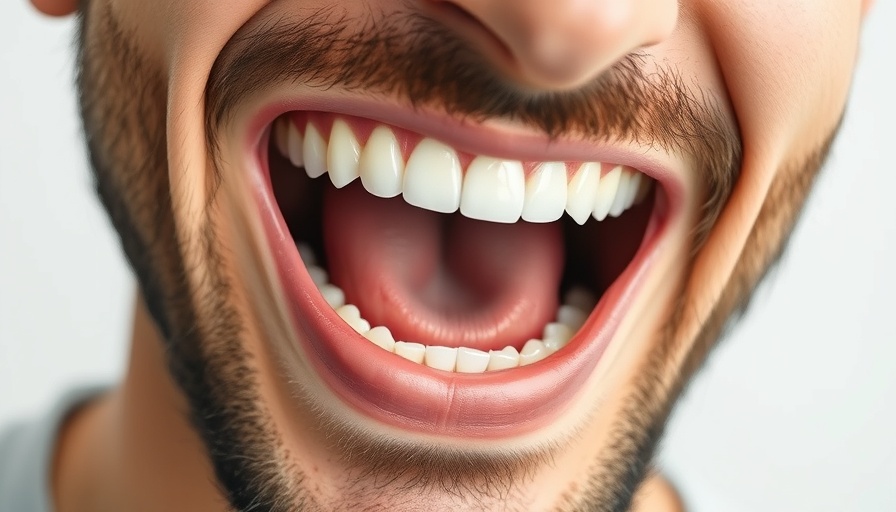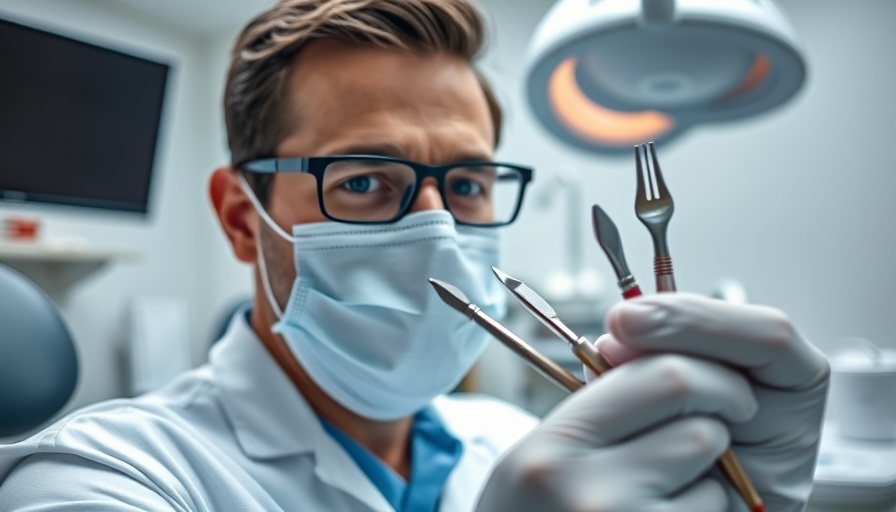
Understanding Bruxism: The Silent Dental Threat
Teeth grinding, or bruxism, might seem like a minor annoyance, yet for a significant portion of the population, it can escalate into a serious dental issue. Many individuals are unaware that they grind their teeth while asleep, unaware of the lasting impact it can have on their oral health. Stress and anxiety are common culprits, but factors like misaligned teeth and certain medications can also trigger this habit.
The Hidden Costs of Teeth Grinding
Although initially it may seem like a harmless act, chronic teeth grinding leads to various dental problems that can necessitate costly interventions like dental implants. The physical toll it takes on the teeth can result in cracks, chips, and significant wear, leaving patients vulnerable to more severe complications. The implications are not just aesthetic either; they influence overall health and quality of life. Those who grind their teeth often report waking up with soreness or headaches, which can affect daily productivity.
How Teeth Grinding Affects Your Smile
The direct effects of bruxism include the degradation of enamel and shifting tooth alignment. This not only necessitates dental intervention, like braces or implants, but can also decrease a person's self-esteem due to diminished aesthetic appeal. The risk of periodontal disease also increases as grinding can lead to gum recession, exposing roots and making them more susceptible to decay.
Bruxism and Its Biological Mechanisms
Understanding the underlying mechanisms of bruxism is pivotal for prevention and treatment. Factors such as family history and dental issues often contribute to this condition. Neurological disorders and even certain medications act as risk factors that can police the propensity to grind, affecting up to 20% of adults in some populations. With an increased understanding of these risk factors, individuals can take proactive steps to mitigate the damage before it becomes irreversible.
Prevention: Steps to Protect Your Teeth
While it may not be possible to eliminate bruxism altogether, there are several strategies to manage the condition effectively. Stress management techniques such as mindfulness, regular exercise, or therapy can drastically reduce the frequency of teeth grinding. Furthermore, wearing a nightguard can protect teeth from the harmful effects of grinding while sleeping. Consulting with a dental professional for a personalized oral care routine can greatly assist in preserving dental integrity.
Future Perspectives: The Role of Technology in Dental Care
As we look towards the future, advancements in dental technology present new avenues for diagnosing and treating bruxism. Enhanced imaging techniques may allow for earlier detection of the wear and tear associated with grinding. Additionally, new materials for nightguards and implants are emerging that enhance comfort and effectiveness, promising an even better quality of care.
Your Path to Better Dental Health
Being proactive about your dental health is crucial, especially as one ages. Awareness and timely intervention can prevent unnecessary dental procedures in the future. If you're waking up feeling sore or have noticed changes in your teeth, consulting a dental professional is the first step towards protecting your smile. Don't let bruxism compromise your quality of life, act today!
To learn more about how you can prevent dental issues related to teeth grinding, please contact your nearest dental professional. Remember, taking care of your teeth now can lead to a healthier and more confident smile later.
 Add Row
Add Row  Add
Add 




Write A Comment